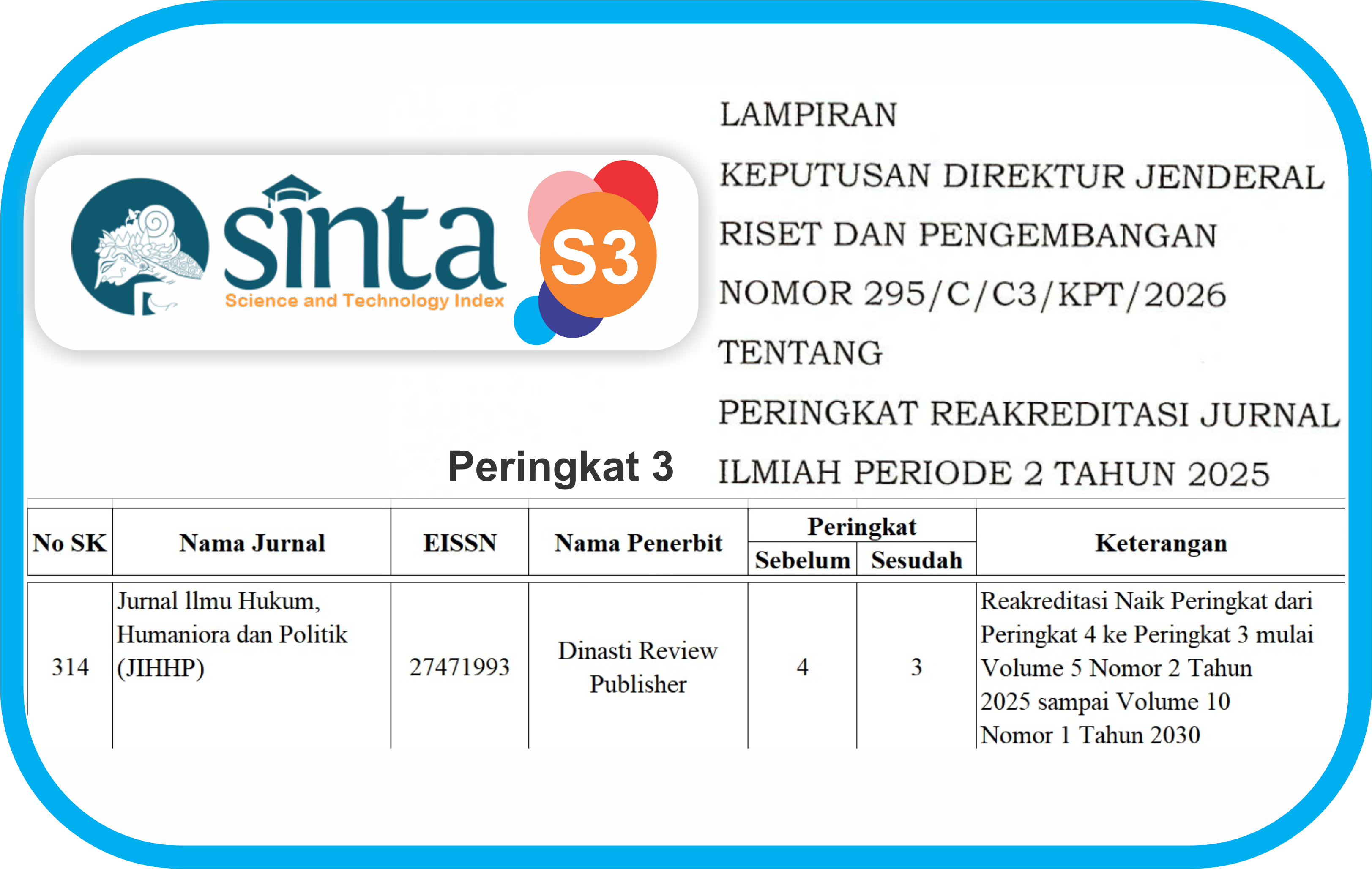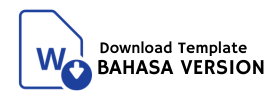Penyelenggaraan Pemerintahan Nagari di Bawah Bayang Negara (Studi Kasus Pemerintahan Nagari Balah Aie)
DOI:
https://doi.org/10.38035/jihhp.v4i4.2168Keywords:
Nagari Government, Government Administration, Nagari Balah AieAbstract
Village Law No. 4 2016 does not guarantee the granting of full authority to the nagari government. The administration of nagari government is dominated by the state. Where all forms of programs have been regulated by the government above them through the regulations and policies they issue. The emergence of a number of policies issued by the government through its ministries means that government administration cannot move and must implement them. For example, Presidential Regulation Number 104 of 2021 concerning details of the APBN for the 2022 fiscal year in article 5 paragraph (4) regulates the use of Village Funds for 2022, one of which is through a social protection program in the form of Direct Cash Assistance (BLT) for villages of at least 40% of total revenue. village funds and 20% for food security and improvement programs and 8% for preventing and handling Covid-19. As well as Regulation of the Minister of Village PDTT RI Number 7 of 2021 concerning Priority Use of Village Funds in 2022, and Regulation of the Minister of Finance of the Republic of Indonesia Number 190/PMK.07/2021 concerning Management of Village Funds. Based on these regulations, it is clear that the administration of the Nagari government must follow this, including the administration of the Nagari Balah Aie government which is also inseparable from the policy commands that have been blinded by the government above.
References
Afwadi. (2010). Penyelenggaraan Pemerintahan Nagari : Antara Format Adat Atau Format Negara. JURIS , 47-60.
Asrinaldi, & Yoserizal. (2013). Quasi Otonomi Pada Pemerintahan Terendah Nagari Simarasok Di Sumatera Barat Dan Desa Ponjong Di Daerah Istimewa Yogyakarta. Sosiohumaniora , 178-193.
Bagir Manan. 1994. Hubungan Antara Pusat dan Daerah Menurut UUD 1945. Jakarta : Pustaka Sinar Harapan.
G.Suharto, D. (2012). Penyelenggaraan Pemerintahan Desa Dalam Perspektif Desentralisasi Administratif Dan Desetralisasi Politik. Jurnal Bina Praja , 153-160.
Harisnawati, Rahayu, S., & Wahyuni, I. S. (2018). Eksistensi Pemerintahan Nagari Di Sumatera Barat Dalam Kajian Sejarah. Jurnal Bakaba , 21-30.
Mahardika, M. G., & Suseno, H. (2018). Optimalisasi Penyelenggaraan Pemerintahan Desa. Jurnal Transformative , 57-67.
Moleong, Lexy J. (2012). Metodologi Penelitian Kualitatif. Bandung : PT Remaja Rosdakarya
Naim, Mochtar. (1990). Nagari versus Desa Sebuah Kerancuan Struktural dalam Edi Utama (ed). Nagari, Desa dan Pembangunan Di Sumatera Barat, Padang: Genta Budaya.
Navis.A.A.(1986). AlamTerkembang Jadi Guru : Adat dan Kebudayaan Minangkabau, Graffitipers. Jakarta
Sahdan, G. (2022). Transformasi Penyelenggaraan Pemerintahan Desa. GOVERNABILITAS (Jurnal Ilmu Pemerintahan Semesta) , 116-131.
Zakir, F. (2021). Mengenal Sistem Pemerintahan Nagari Di Provinsi Sumatera Barat. Ensiklopedia Of Journal , 53-57.
Downloads
Published
How to Cite
Issue
Section
License
Copyright (c) 2024 Rhevi Aliza, Tengku Rika Valentina, Roni Ekha Putera

This work is licensed under a Creative Commons Attribution 4.0 International License.
Hak cipta :
Penulis yang mempublikasikan manuskripnya di jurnal ini menyetujui ketentuan berikut:
- Hak cipta pada setiap artikel adalah milik penulis.
- Penulis mengakui bahwa Jurnal Ilmu Hukum, Humaniora dan Politik (JIHHP) berhak menjadi yang pertama menerbitkan dengan lisensi Creative Commons Attribution 4.0 International (Attribution 4.0 International CC BY 4.0) .
- Penulis dapat mengirimkan artikel secara terpisah, mengatur distribusi non-eksklusif manuskrip yang telah diterbitkan dalam jurnal ini ke versi lain (misalnya, dikirim ke repositori institusi penulis, publikasi ke dalam buku, dll.), dengan mengakui bahwa manuskrip telah diterbitkan pertama kali di JIHHP.















































